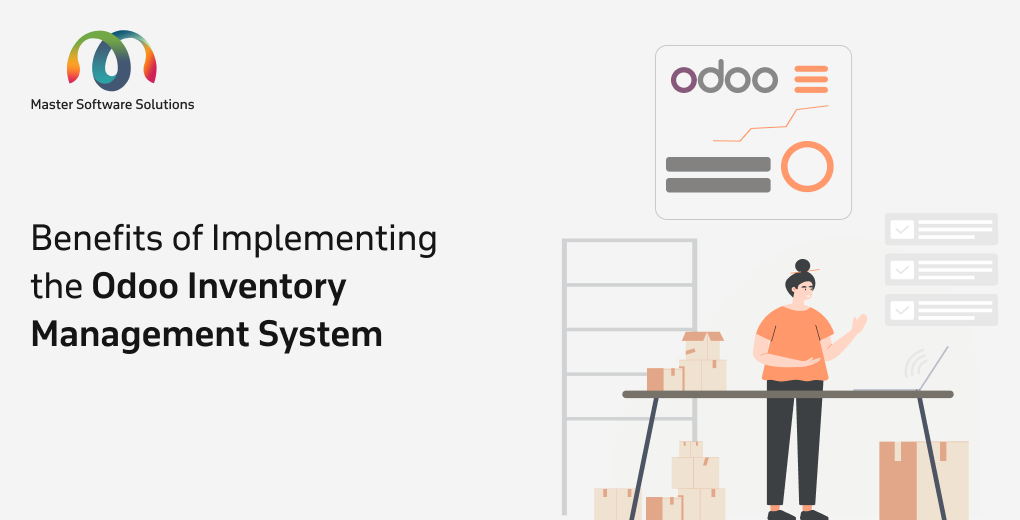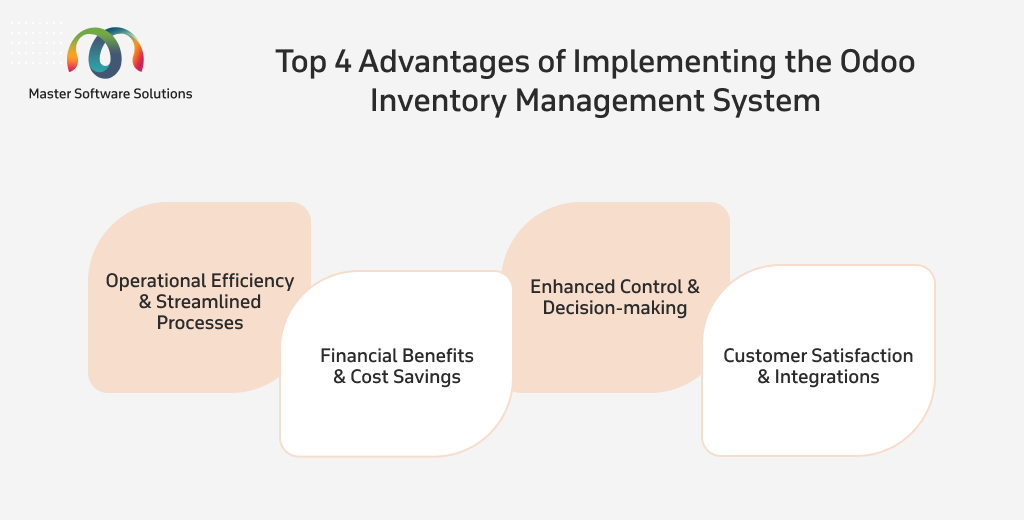Inventory management is crucial for every business that offers products to its customers. With increasing customer demand for convenient and fast deliveries, businesses have started to implement Odoo ERP to manage their business operations.
Odoo ERP is an integrated platform that offers multiple business applications, including the inventory module. This blog focuses on exploring the benefits of implementing the Odoo inventory management system.
Understanding automated inventory management
Advanced inventory management leverages artificial intelligence and machine learning to automate operations and provide robust analytics. Automating inventory management eliminates manual data entry, mitigating errors, inefficiencies, and maintenance costs.
Odoo ERP offers powerful inventory management to simplify operations and ensure optimum stock levels. Moreover, it provides robust analytics that use ML to analyze historical data to identify patterns and trends for accurate demand forecasting.
Odoo inventory module enables businesses to track and manage stocks in real-time, ensuring timely replenishments and seamless operations. The system allows you to define minimum and maximum stock levels to trigger purchase order creation, automating replenishment.
Advantages of implementing Odoo inventory management
Odoo ERP inventory module offers various benefits that can significantly help you save money, time, and resources. The system aims to improve a business’s operational efficiency, profitability, and customer satisfaction.
It transforms traditional inventory management into an efficient, data-driven, and cost-effective system, making your business more agile and successful. The top 4 advantages of implementing the Odoo inventory management system are:
Operational efficiency and streamlined processes
Odoo ERP improves operational efficiency with task automation, real-time stock tracking, barcode and QR code integrations, and multi-warehouse management. Odoo automates routine tasks, including creating purchase orders based on reordering rules, generating delivery orders, and performing stock transfers. This mitigates the chances of human errors and speeds up the entire inventory process.
This ERP system provides real-time visibility into stock levels across all warehouses and locations. The real-time visibility ensures inventory counts, preventing stockouts and overstocking, and facilitating prompt decision-making. Odoo enables efficient warehouse management through features like putaway strategies (FIFO or FEFO), optimized picking methods (single, cluster, wave, and batch picking), and intelligent routing for product movements.
Odoo inventory module’s barcode scanning capabilities, including Global Standard 1 (GS1 is a worldwide organization that develops and manages standards for identification, capture, and exchange of information related to goods and services), Global Trade Item Number (GSTIN) – EAN13, EAN14, and QR codes, streamline receiving, picking, packing, and inventory adjustments. This accelerates warehouse operations and improves inventory data accuracy, supporting offline functionalities for uninterrupted scanning.
Odoo helps businesses with multiple inventory storage locations to easily manage and transfer stock between them. This provides a centralized view of inventory levels across the entire supply chain network.
Financial benefits and cost savings
Odoo ERP offers powerful features that reduce your holding costs, improve cash flow, and accurately value inventory. Optimizing stock levels and automating reordering based on the forecasted demand prevents excess inventory, reducing shortage costs, carrying costs, and the risk of obsolescence or waste.
Accurate inventory tracking and optimized order fulfillment ensure that your capital is not tied up, leading to better cash flow management. Odoo supports various inventory valuation methods, including FIFO (First-in, First-out), standard price, and LIFO, providing accurate cost tracking and real-time accounting records for purchase scraps and other inventory actions.
Enhanced control and decision-making
Odoo enables comprehensive traceability, advanced reporting and analytics, forecasting and demand planning, and proactive alerts and notifications. The system allows you to track your stocks in lots and serial numbers, providing a detailed product journey history from suppliers to customers. This is essential for quality control, recall management, and compliance in various industries.
The Odoo ERP system provides in-depth reports and customizable dashboards that provide valuable insights into stock movements, inventory valuation, product performance, and demand trends. This facilitates a data-driven approach, enabling businesses to make informed purchasing, production, and sales strategy decisions.
Leveraging machine learning to analyze historical sales data and real-time insights helps predict accurate future demands. This enables better inventory planning, preventing stockouts and overstocking. Automated alerts for low stock levels, vendor lead times, and critical inventory events to empower business managers to react swiftly and prevent disruptions.
Customer satisfaction and integrations
The Odoo ERP inventory management fosters faster order fulfillment, seamless integrations with other modules, enhanced customer transparency, and streamlined return management. Real-time stock updates and optimized picking/packing processes enable businesses to make quick and accurate order fulfillment, increasing customer satisfaction rates.
The system supports seamless integration with other Odoo applications, including Sales, Purchase, Manufacturing, Accounting, E-commerce, and CRM. This unified approach removes data silos, reduces manual data entry, and ensures consistent data flow across the entire business.
Offering a customer portal (app or website) enables customers to track their order status, payments, and deliveries, enhancing transparency and reducing customer inquiries. The Odoo ERP simplifies returns handling and defective goods, allowing easy categorization and processing of scrap items and returns.
Conclusion
Odoo implementation empowers businesses with the tools to seamlessly manage and track their stock, optimize warehouse operations, and improve overall supply chain efficiency. It aims to increase productivity and profitability, reducing stock holding and storage costs.
Are you looking to enhance your inventory management with an Odoo implementation? Schedule a free Odoo consultation with Master Software Solutions to explore business growth opportunities.

